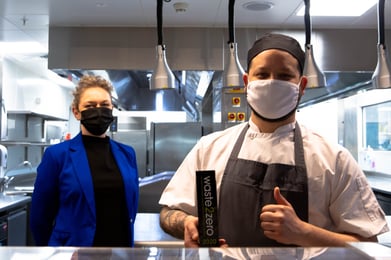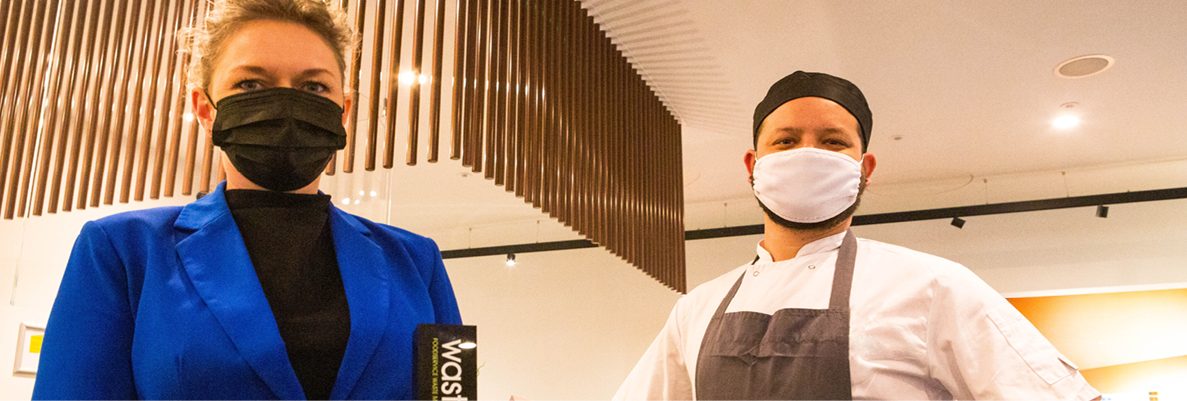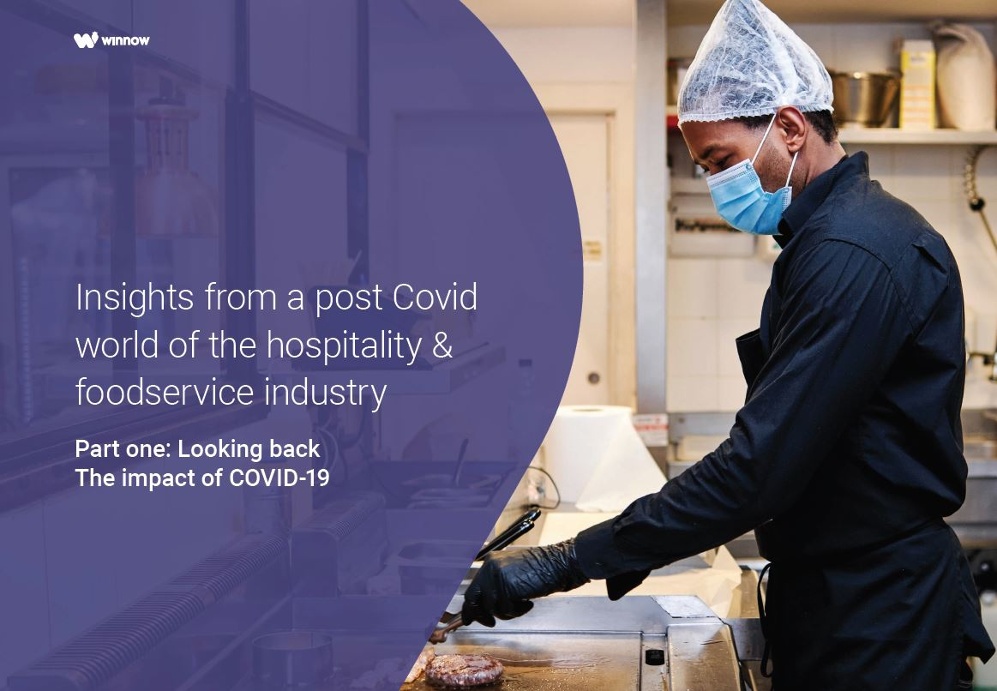In March ISS and Winnow won the Best Waste Prevention Project Award (Food) award at the 2020 Footprint Waste2Zero awards. The annual event celebrates excellence in sustainability and the circular economy across the foodservice sector.
The award entry was jointly submitted in partnership with Winnow and highlighted the achievements at a key client site; a leading professional services company based in London where food waste was slashed by 60%. This month we caught up with General Manager Paulina Ciecielag and head chef Iain Parker to reflect on the win and discuss how important sustainability will be post-pandemic.
So congratulations are in order - you won Best Waste Prevention Project Award (Food) at the Footprint Waste2Zero Awards. How does it feel?

Paulina: It’s a huge achievement and 100% a team effort. We’re delighted that the team has been recognised and it’s testament to the partnership we have with Winnow. I have to admit that when we first started I was sceptical, but the results speak for themselves. Together we’ve managed to cut food waste by over 60% in just four months which we’re really proud of.
Iain: Sustainability is at the heart of everything for us. We practice nose to tail cooking, source local ingredients and are increasingly looking to plant based proteins in our menus. No chef wants to waste food, and Winnow has helped me and my team to identify areas where we can make adjustments.
Can you tell us a bit more about the project?
Paulina: We started in late 2019. We installed Winnow’s technology which is a tablet and a smart scale in one of our London site . It’s a complicated site with a central production kitchen located on a different floor to the dining area. Winnow’s customer success manager trained our team and explained why the project was important - this is really important to get buy in from the kitchen. We left the session feeling energised and motivated to work together to reduce waste. The next step was to measure a baseline which took place over a week, and we could see which items were being wasted consistently. We saw that we were overproducing items like porridge during breakfast service and soup at lunch. We saw waste come down pretty quickly after that.
Iain: The reports we get from Winnow help us track which items are being wasted. It’s funny because even though it’s obviously a high tech solution, in some ways it brings us back to basics as chefs - using all of the product we buy and wasting as little as possible. After using Winnow we try to be more creative with our leftovers. For example, we make more stocks now with our trimmings, and there’s a dish that I personally love using grilled broccoli stems cooked on a Japanese Robata grill which is absolutely banging.
Paulina: I used to read the reports on the train and we would have a daily conversation about food waste together looking at which items were being wasted and where we could work together as a team to improve. We set ourselves a target to cut food waste in half in the first year of using Winnow, but we ended up cutting waste by 60% in just four months. This is the equivalent of more than 44,000 meals saved from the trash, or 77 tonnes of CO2 emissions prevented.
What do you think the future holds for sustainability initiatives like this one?
Iain: There’s no doubt that sustainability will be key for foodservice going forwards. It’s a priority in every ISS kitchen, and initiatives like tackling food waste help us come together as a team. Tools like Winnow help us to be better ethically as well as financially.
Paulina: Food waste will continue to be an issue for the future. We have to carry on educating people on how it can be solved. On a broader scale we need to reconnect with nature - this pandemic has shown us how fragile our environment really is and we need to protect it. We’re doing our bit by reducing food waste, single use packaging and helping our clients achieve their own net zero goals by becoming leaders in sustainability.










Comment on my blog